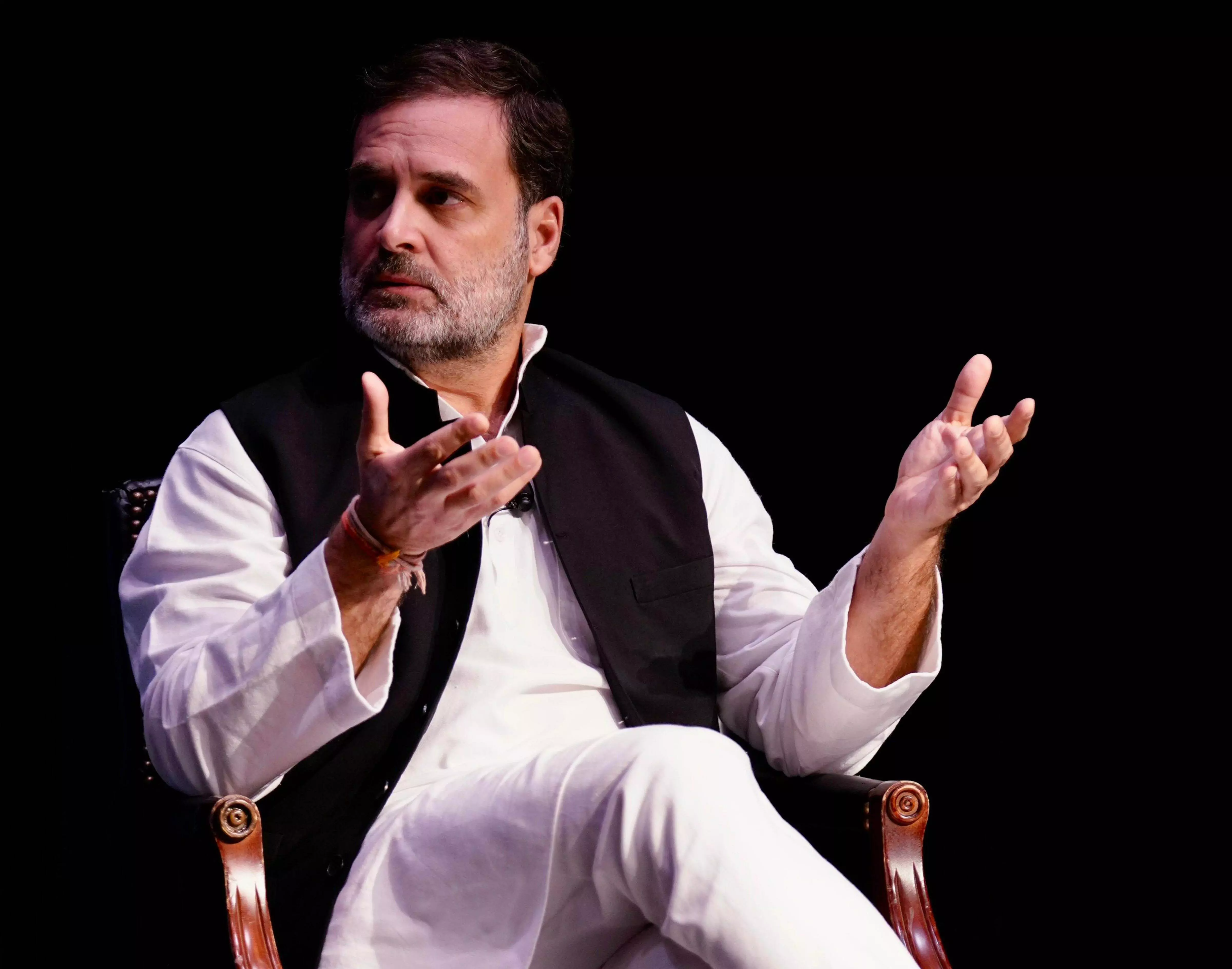An alternative vision

Politics is a battleground of ideas and ideologies, none of which are perfectly practiced. While in some cases, alternative ideas may seem to contradict each other, they also serve as complements over a period of fluctuating timeline—meeting needs and wants of people that keep evolving and shifting, often in a loop. For the last ten years, India has been led by a political party that projects its leaders as hardcore, dedicated individuals who act as sentinel against numerous enemies—external and internal, genuine and manufactured. There is an air of constant fear (provided with the assurance of safety) and tension, loaded with sophisticated designs to take India to ambitious heights, in absence of which India would fall apart.
Rahul Gandhi’s speeches in the United States act as a natural breather in the tense atmosphere. At a time when communal tensions across the country are palpable, and communities are turning hostile to each other, Gandhi’s call for “love, respect and humility” acts as a soothing balm on a wounded skin. His message couldn’t have been clearer: Love to all human beings, not necessarily only people of one religion, one community, one caste, one State, or to those who speak one language. Respect to everybody who is trying to build an India, not just the most powerful, but the weakest; and humility, not in others, but in oneself.” Just like a family, a nation doesn’t necessarily need a tough, unyielding leader—presenting themselves as someone excessively obsessed about the “image” of things, someone who likes to exercise excessive control over things for the stated betterment of the people. At times we need leaders who can talk of love, admit the shortcomings in governance and policies, put their heads on the shoulders of their brothers/sisters, emphasise compassion more than hard-and-fast discipline, and yet be firm and resolute in their approach.
In a tone and tenor that is distinct from the BJP leaders, Gandhi spoke about a range of crucial issues—from foreign policy to internal politics. His clear stance on Pakistan, refusing to entertain dialogue until terrorism is curbed, syncs perfectly with a national consensus that transcends party lines. "We are not going to accept Pakistan carrying out terror acts in our country," he said, firmly rejecting any dialogue unless terrorism is addressed. His position mirrors Modi’s hardline approach to Pakistan, particularly concerning the terror activities that have strained bilateral relations for decades. Abstaining from sugar coating and flattering, Gandhi spoke out his views plainly with regard to Indo-US relations. While he maintained that the Indo-US relationship is key for both countries, he did not shy away from saying that he did not want any role of the US in India's internal affairs. It is for the people of India to decide. Such a statement is a true reflection of clarity and maturity expected of a high-calibre national leader. Nevertheless, it is on China where Rahul Gandhi sharply diverges from the Modi government. His accusation that Chinese troops have occupied Indian territory in Ladakh, equivalent to the size of Delhi, is a damning critique. Gandhi’s remarks follow his earlier comments about the Galwan Valley clash, where he has consistently argued that Modi's government is downplaying the extent of Chinese territorial encroachment.
This critique is a significant political challenge for Modi, who has built his image on strong national security credentials. Gandhi’s comments directly question Modi’s ability to defend India’s territorial integrity, an issue that is so close to the heart of the Indian electorate. The BJP, in turn, has aggressively countered Gandhi’s allegations, accusing him of undermining India and promoting China, a narrative that is devoid of any substance. Gandhi, during one of his speeches, highlighted the fragilities of India’s employment scenario, and compared it with China—prompting the BJP to level such allegations. Speaking out the truth, even if it is bitter, is more important than hiding problems beneath the carpet for furnishing a positive image of governance.
Gandhi’s criticism of the BJP’s ideological approach, particularly the influence of the Rashtriya Swayamsevak Sangh (RSS), arguing that the government’s vision of India as a monolithic entity undermines its pluralistic nature, has also irked India’s ruling party at the Centre, which seems obsessed with “tarnishing of India’s image” at every second instance. As India’s Leader of Opposition, Rahul Gandhi, in a foreign land, kept his words balanced and honest. His divergence from Modi’s more centralised, nationalist vision marks a clear distinction between the Congress and BJP’s approaches to governance, both domestically and in the realm of foreign policy. He has managed to put forth an alternative vision of governance of India, which is not only in sync with India’s diversity and legacy, but also aligns with the US’ stated vision of a democratic world.



